Fellows
Honorary Fellowships
The Honorary Fellowships scheme was set up by the Board of Trustees in 2011 to receive nominations for the prestigious title of Honorary Fellow of the British Shakespeare Association. Each year, the Fellowships committee expects to recommend the names of two eminent individuals who have made major contributions to our understanding of Shakespeare, through scholarship and performance.
Innovation Award
In 2022 the committee instituted the Innovation Award, to be awarded annually to an individual or organisation involved in Shakespearean studies, performance, and/or the cultural and creative industries. The winner will have substantially innovated our engagement with and appreciation of the dramatist and his works.
Awards Committee
The committee, chaired by Brett Greatley-Hirsch, is responsible for selecting appropriate candidates and for recommending their names to the Board of Trustees. Fellows are honoured at special BSA events to which all members are invited.
Our Fellows
-
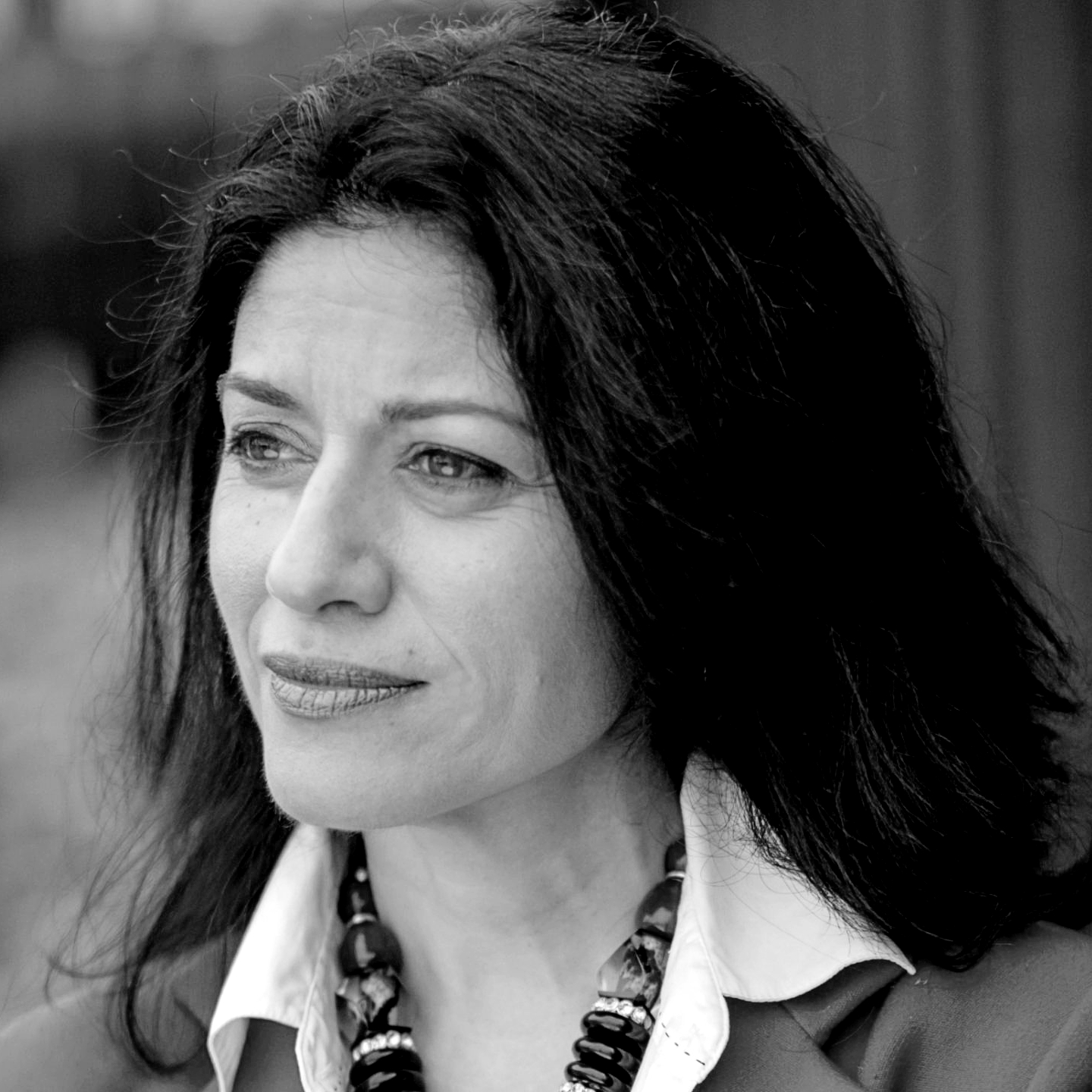
Farah Karim-Cooper
Honorary Fellow, 2023
Farah Karim-Cooper is Professor of Shakespeare Studies at King’s College London and Head of Higher Education & Research at Shakespeare’s Globe London. Her pioneering work, activism, and leadership in anti-racist Shakespeare are exemplary, reaching world-wide online audiences. Throughout her career, Farah has pursued an active commitment to making her fields of study more equitable and inclusive, creating the steering committee of the first ever Early Modern Scholars of Colour network in the UK.
-

Robert Myles
Innovation Award Winner, 2023
During lockdown, Robert Myles assembled a diverse community of creatives to perform all of Shakespeare’s plays, dubbed The Show Must Go Online, helping to set the agenda for online digital Shakespeare. What makes Rob’s approach unique is his detailed understanding of the nuances of Shakespeare’s language. An attentiveness to text is central to his creative practice: his insights offer novel approaches that challenge orthodoxies in Shakespeare performance, asking us to return to the plays afresh.
-
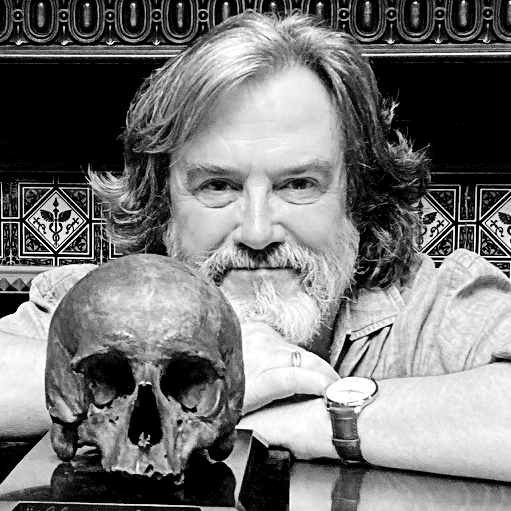
Sir Gregory Doran
Honorary Fellow, 2022
Sir Gregory Doran was Artistic Director at the Royal Shakespeare Company from 2012 to 2022. He continually evolved the theatre through innovative staging, including his trailblazing production of The Tempest. His work has been nominated for many awards, including an Emmy and BAFTA award for his 2009 TV movie of Hamlet, which brought an exceptional performance to households all over Britain. He was awarded a knighthood in the 2024 New Year’s Honours for services to the Arts.
-
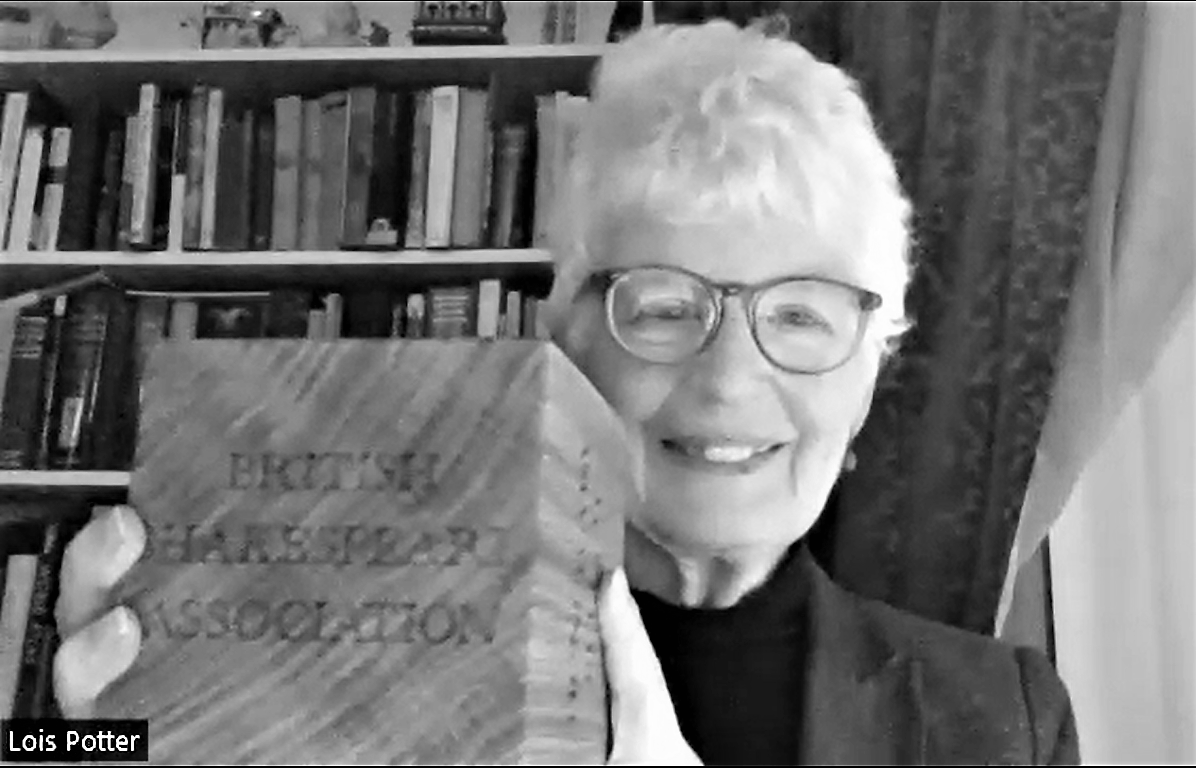
Lois Potter
Honorary Fellow, 2022
Over a career spanning six decades and three continents, Professor Emerita Lois Potter has been a lodestar in the study of Shakespeare and his contemporaries. Her books on Twelfth Night and Othello serve as true models of performance-oriented criticism, but it is likely for her majestic critical biography, The Life of William Shakespeare, that she is best known, a book which showcases the very best of Potter’s absorbing, accessible, and rigorous scholarship.
-

Creation Theatre Company
Innovation Award Winner, 2022
From the beginning of the Covid-19 pandemic in early 2020, their executive director, Lucy Askew, has led Creation through an innovative transformation from site-specific performance to digital performance. Their interactive production of Romeo and Juliet was a notable triumph in this form, as it took place in an expansive digital universe and positioned the audience into an active relationship with the ‘onstage’ action. Creation Theatre’s innovative approaches and development of digital theatre techniques made possible new and exciting ways of producing and experiencing theatre online.
-
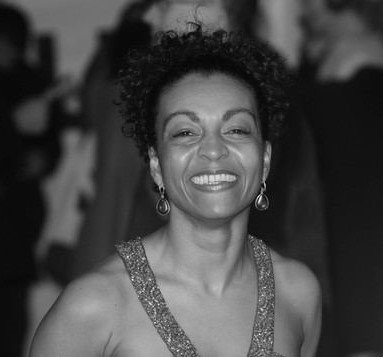
Adjoa Andoh
Honorary Fellow, 2021
Having played a variety of early modern roles for the BBC Radio Drama Company, Andoh made her RSC debut in 1993, playing Agydas in Terry Hands’ production of Tamburlaine, and in the 2000s played Portia in Julius Caesar (2012). Her performance as Dionyza in Pericles (2013) was described by The Independent as ‘beautifully steely and precise’. In 2018 her Ulysses for Gregory Doran’s Troilus and Cressida was revered as a ‘stand out’ performance by the Guardian; also that year she played Casca in Nicholas Hytner’s Julius Caesar at The Bridge. But it is her work in bringing Richard II to the Sam Wanamaker Playhouse in 2019 which truly demonstrates Andoh’s strength as a visionary theatre-maker. The production was described as a ‘post-Empire reflection’ which, for the first time on a main UK stage, used a cast and crew entirely composed of women of colour. Andoh co-directed the production with Lynette Linton and also played the title role, saying that, ‘for once, we thought we’d tell the story of England with the people who are generally considered to be at the bottom of the building heap, which is people of colour and women’. Described by The Guardian as a ‘pioneering’ production, Andoh’s Richard II served as ‘a reminder that Shakespeare is available to everyone’.
-
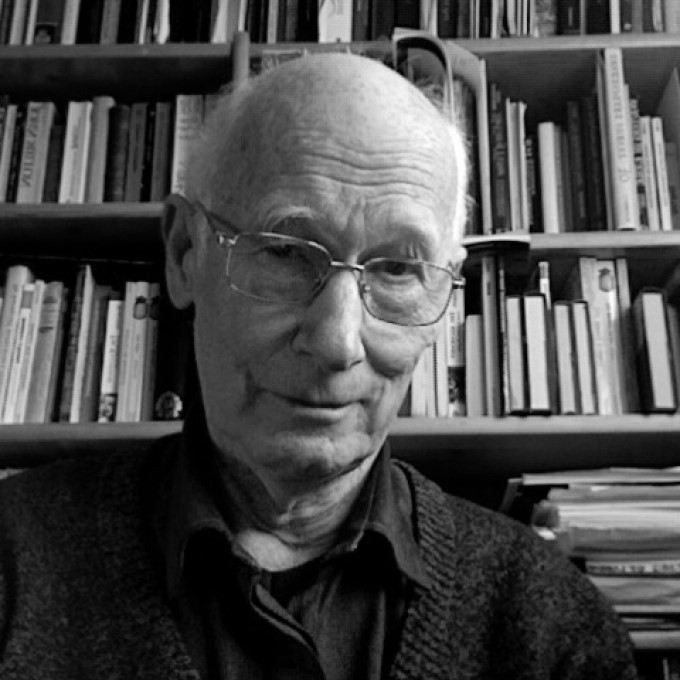
Andrew Gurr
Honorary Fellow, 2021
Author of over twenty monographs, play editions, and edited collections, and many more journal articles and conference papers, Andrew Gurr’s work has helped to shape and define Shakespeare and early modern theatre studies. His pivotal books, especially Playgoing in Shakespeare’s London (1987), The Shakespearean Stage, 1574-1642 (1992), and The Shakespearean Playing Companies (1996) remain work that is read, cited and admired. However, his ideas and insights also continue to breathe new life into our understanding of Shakespeare today, most recently his work on the Sam Wanamaker Playhouse and edited collection of essays (with Professor Farah Karim-Cooper), concerning the process of Moving Shakespeare Indoors (2014). Professor Gurr’s research has not only centred on theatre history, therefore, but also the performance and practice of Shakespeare today. He has held key roles in globally-significant architectural reconstructions such as Shakespeare’s Globe in London and the Blackfriars Playhouse in Staunton, Virginia. Alongside his prestigious publication and editorial achievements, Gurr has helped to animate Shakespeare for thousands of audiences worldwide as a pioneer of performance-as-research, claiming that ‘Any amount of reading, any amount of study, will not match the kind of absolutely direct experience of running plays.’
-
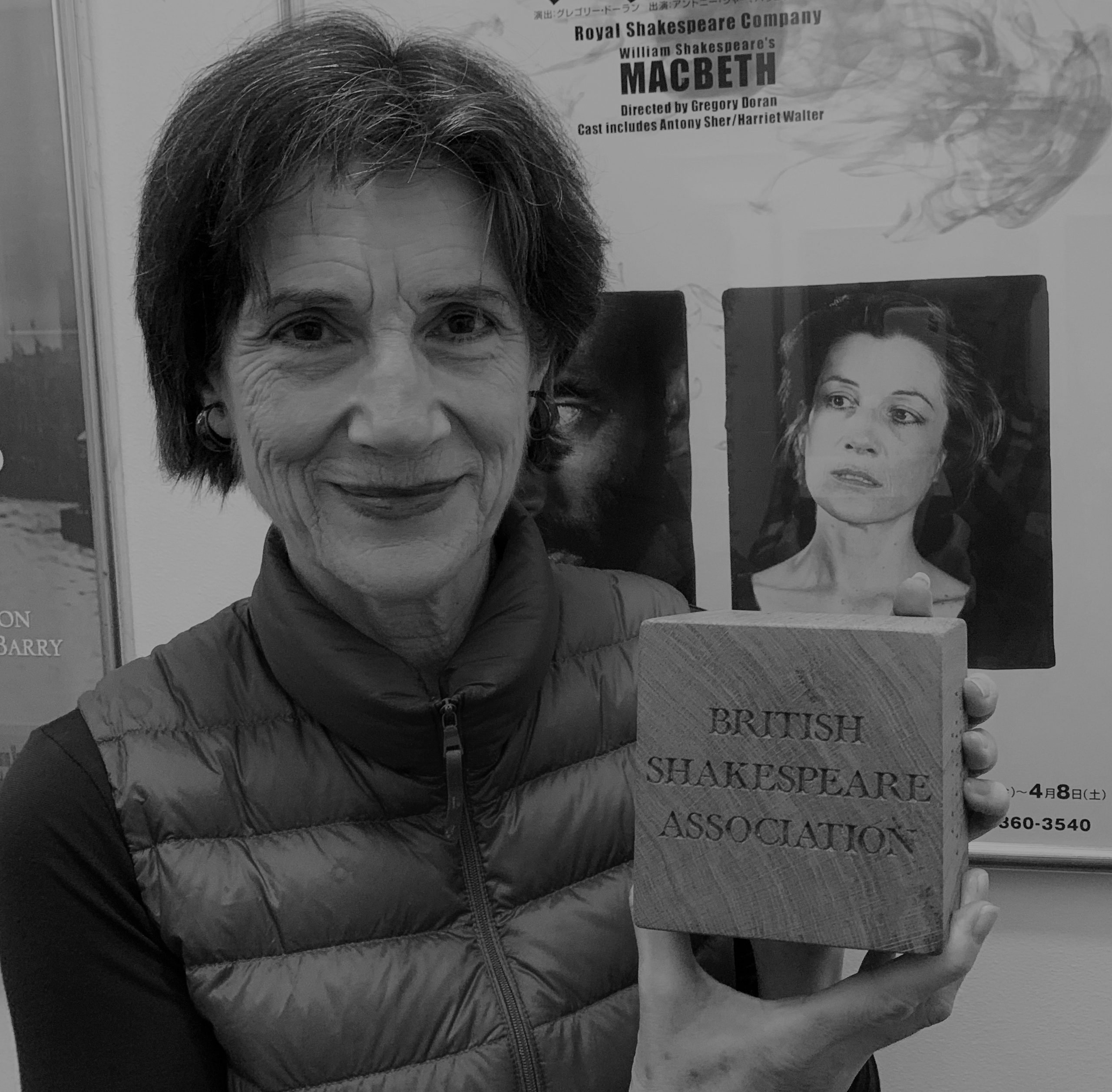
Dame Harriet Walter
Honorary Fellow, 2020
Dame Harriet Walter has been an admirable interpreter of Shakespeare, and her performances of roles like Portia, Cleopatra, Lady Macbeth, and Imogen are characterised by their intelligence as much as their passion. Her career of over 25 years has made spectators worldwide aware that, when performing Shakespeare, ‘We have to stretch wider and higher and dig deeper than our standard selves’ (Guardian, 2014). Nevertheless, her frustration with the limits of roles for women engaged her in an important political project: the promotion of gender neutral casting. Her ‘Open Letter to Mr William Shakespeare’ (2014) made the point that women have less opportunities to perform his work and that, ‘despite the fact that the world has changed enormously since your day, the stories we tell about ourselves still tend to follow your template, with male protagonists whose thoughts and actions matter – and females who matter only in as much as they relate to those men.’ Her own performances as Brutus, Henry IV and Prospero in the ‘Donmar Trilogy’ made a decisive break with that tradition as well as commenting on it. The BSA is delighted to reward Dame Harriet Walter for her lifelong commitment to raising women’s profile in Shakespeare by awarding her the Honorary Fellowship of 2020.
-
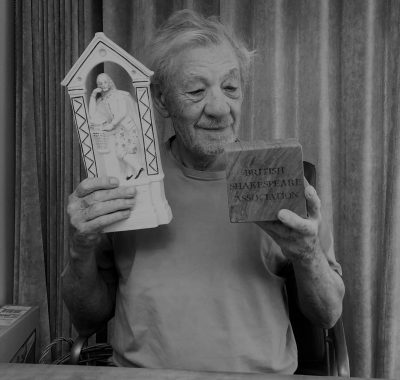
Sir Ian McKellen
Honorary Fellow, 2020
The recipient of every major theatrical award in the UK and the US, Sir Ian McKellen’s place as one of the most eminent and famous Shakespeareans is beyond doubt. Cited as one of the ‘Great Shakespearean Actors’ in Stanley Wells’ book of that name, Wells asserts that ‘His great strengths lie in the presentation of self-deprecating irony, of emotional complexity, and of a troubled inwardness of soul.’ Known for his performances as Macbeth, Lear, Aufidius, Richard III, and many more, Sir Ian most recently performed the role of Hamlet for the first time in 50 years in an ‘age blind’ production (2021). An activist as well as an actor, McKellen helped to create the Stonewall organisation to support LGBT equality. However, his strengths go beyond both acting and activism; he also wrote the screenplay for his adaptation of Richard III, a film which paved the way for many future adaptations of Shakespeare on film. With a lifetime of excellence in the realm of Shakespearean performance assured, Sir Ian McKellen has invaluably furthered our understanding of the playwright, and continues to illuminate his work. The BSA is delighted to award Sir Ian an Honorary Fellowship of 2020, an actor who has shown ‘the very body and age of the time … his form and pressure.’
-
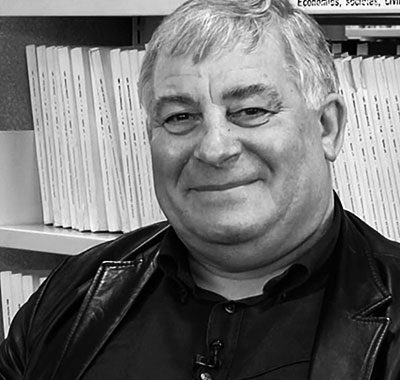
John Drakakis
Honorary Fellow, 2019
John Drakakis is Emeritus Professor of English Studies at the University of Stirling. He has published widely in the area of Shakespeare Studies and is the editor of Alternative Shakespeares, a series that had a fundamental effect on the academic study of Shakespeare in Britain, alongside Dollimore and Sinfield’s Political Shakespeare. He is also editor of The Merchant of Venice for the Arden 3 series and Q1 Richard III. John was a founding trustee of the British Shakespeare Association and was chair of its Fellowships sub-committee. He is an elected member of the English Association, a member of the Academia Europoeia, and he holds an honorary D.Litt. from the University of Clermont-Auvergne. He is currently the general editor of the Routledge New Critical Idiom series, and is the general editor and contributing editor in charge of the revision of Geoffrey Bullough’s Narrative and Dramatic Sources of Shakespeare.
-
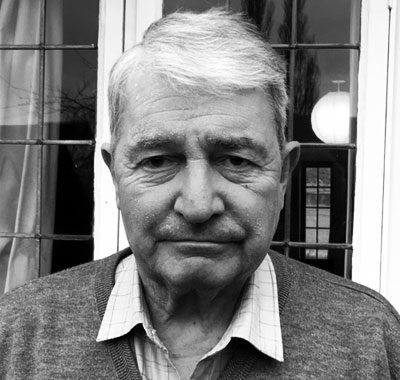
Roger Harcourt
Honorary Fellow, 2018
Roger is a giant in the world of Shakespearean Education. A teacher for the whole of his life, he has touched thousands of young people with his immense experience and insights. He has given the greatest gift any educator can give to his students: inspiration. Such a gift to these many young Shakespeareans is inestimable. Worldly fame, celebrity, are too often the guide as to where excellence lies. But Roger’s commitment, passion, joy, expertise and achievements in passing on the torch of inspiration to generations of young students is clearly the truest measure. To celebrate a lifetime’s achievement of excellence in the Shakespearean world is our remit for the bestowing of an Honorary Fellowship, and it is wonderful that we can celebrate Roger and the Shakespearean constituency that he has represented with such distinction.
-
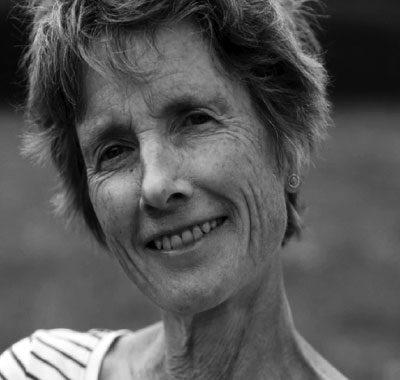
Sarah Stanton
Honorary Fellow, 2017
For almost 40 years Sarah Stanton shaped the field of Shakespeare studies through her work as chief commissioning editor at Cambridge University Press. Her faith, encouragement and knowledge has been both a source of inspiration for many of those thinking and writing about Shakespeare. Whenever she is asked ‘What is there new to say about Shakespeare?’, Sarah tells us that she replies as follows: ‘Shakespeare is a glorious, baggy monster. He lived 400 years ago, but his drama made living history…If you switch on a performance of Macbeth or A Midsummer Night’s Dream, you have no such familiar anticipation as you would with Austen or Dickens…And so with books on Shakespeare…As each generation finds something new, so the texts of these plays and poems must be adjusted, introduced, annotated, illustrated for students and theatregoers of the next age.’
-
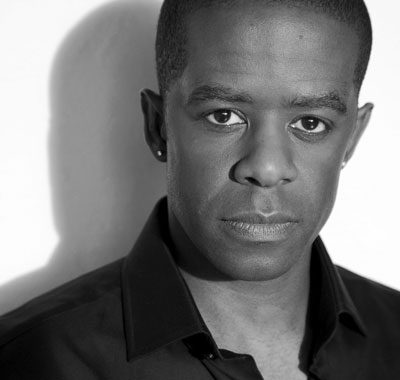
Adrian Lester
Honorary Fellow, 2017
Adrian Lester has become one of the most eminent Shakespearean actors of his generation. He first came to public attention for his stunning rendition of Rosalind in the famous all-male production of As You Like It by the Cheek By Jowl Theatre Company. Since then he has excelled in the roles of Hamlet, Henry V and Othello at the National Theatre. His Hamlet won the Carlton TV Theatre Award and his Othello the joint winner of the Best Actor Award in the 2013 Evening Standard Theatre Awards. In addition to his stage performances, he has also demonstrated a passionate commitment to fostering conversations about race and racial diversity in Shakespearean performance.
-

Chris Grace
Honorary Fellow, 2015
-
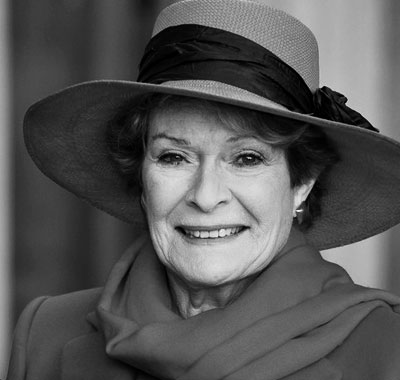
Janet Suzman
Honorary Fellow, 2015
-
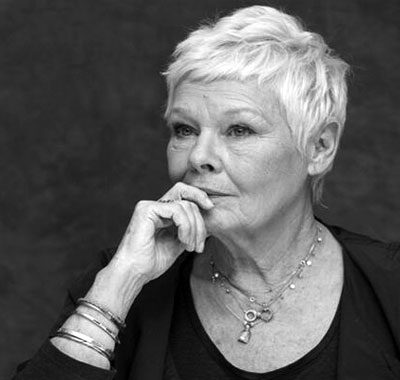
Dame Judi Dench
Patron
Dame Judi Dench is an Oscar award-winning film, stage and television actor. Her Shakespearean screen roles include Mistress Quickly and Hecuba in Kenneth Branagh’s Henry V and Hamlet, as well as her lauded appearance as Queen Elizabeth I in John Madden’s Shakespeare in Love (1998). She is perhaps best known to wider audiences for her appearances as ‘M’ in seven James Bond films as well as the title roles of Iris, Mrs Brown and Mrs Henderson Presents. She was a regular member of the RSC ensemble throughout the 1970s and returned in recent years as the Countess in All’s Well that Ends Well (2003) and Mistress Quickly in Merry Wives: The Musical (2006). She was awarded an OBE in 1970 and DBE in 1988.
-
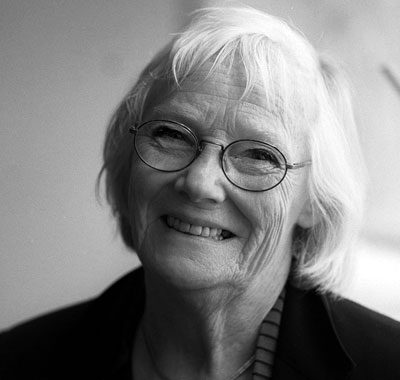
Cicely Berry
Honorary Fellow, 2012
Cicely Berry, who died in 2018, was Director of Voice at the Royal Shakespeare Company, where, for forty-five years, she has played a vital role in forming and developing the company’s working practices. She has had an equally important impact on education and has also made Shakespeare’s language available beyond the theatre through, for example, her work in prisons and with the Brazilian company Nos de Morro. She has published five books which provide detailed accounts of her ideas, techniques and practices. Her awards include several honorary doctorates, the Sam Wanamaker Award (2000) and the Samuel H. Scripps Award (2007). In 2009, she was awarded a CBE in the Queen’s Birthday Honours. She was made an Honorary Fellow in 2011 in recognition of her outstanding contribution to Shakespeare performance and education. An interview with Cicely is published in Teaching Shakespeare 1.
-
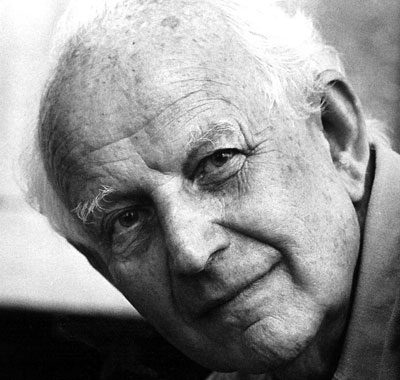
John Russell Brown
Honorary Fellow, 2014
Professor John Russell Brown, who died in August 2015, was a distinguished academic, dramaturg and theatre director. He established one of the country’s first university Drama departments at Birmingham and later ran the scripts department at the National Theatre. He also brought Shakespeare to the wider public as a television presenter and children’s author. He was best known for his pioneering work on Shakespeare in performance and became an Honorary Fellow in 2014 in recognition of his exemplary contribution to British Shakespeare.
-
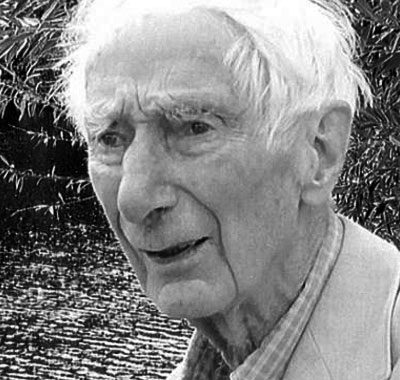
R A Foakes
Honorary Fellow, 2014
R. A. Foakes, who died in December 2013, was a critic, textual scholar, and theatre historian. His landmark edition of Henslowe’s Diary, co-edited with R. T. Rickert in 1961, was an essential work of scholarship surpassing the edition by W. W. Greg. Out of print by the turn of the century, copies fetched hundreds of pounds in the used-book market until Cambridge University Press reissued it in paperback in 2002. From his edition of Henry VIII for the Second Arden Shakespeare series in 1957 to King Lear for the Third Arden Shakespeare 40 years later, Foakes led a generation of post-war critics who combined theatrical and poetical sensibility with a forensic approach to documentary scholarship. He was awarded an Honorary Fellowship in 2013 for his outstanding contribution to British Shakespeare.
-
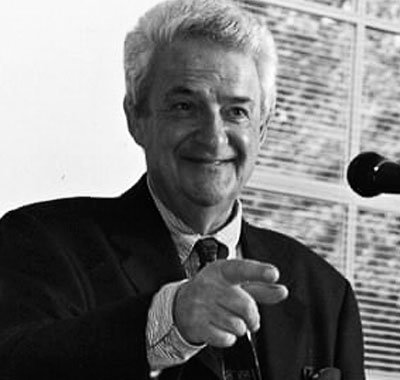
Terry Hawkes
Honorary Fellow, 2013
-
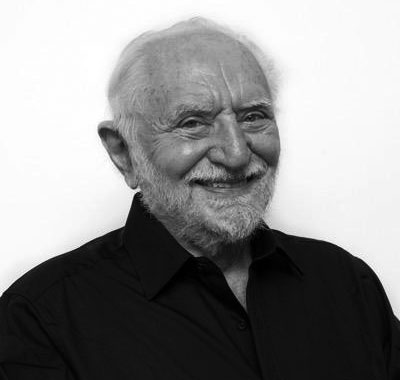
Stanley Wells
Honorary Fellow, 2013
-

John Joughin
Honorary Fellow, 2012
-
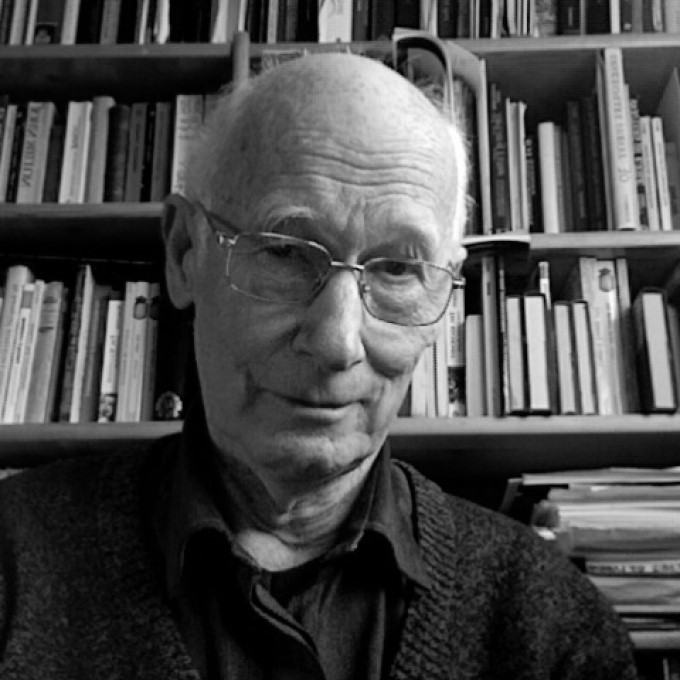
-


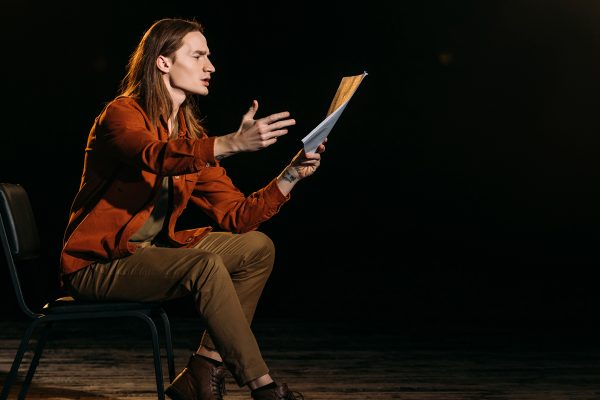;)
;)
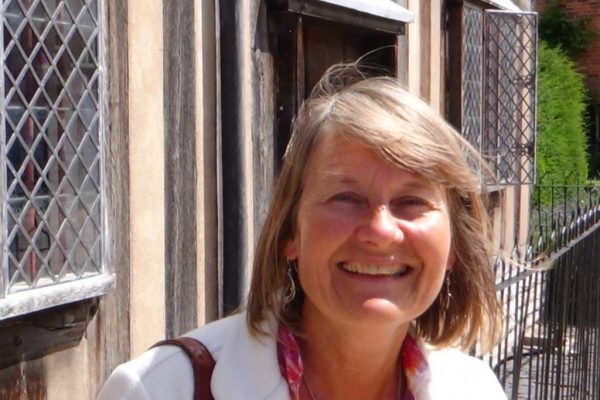;)